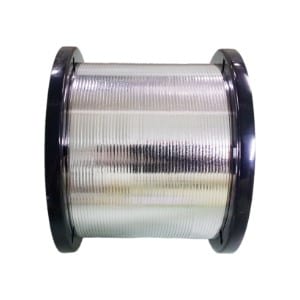Crucial Steps to Identifying the Right Solar Ribbon Supplier for Your Business
In the ever-evolving landscape of renewable energy, solar power has emerged as a frontrunner in the quest for sustainable alternatives. As businesses increasingly turn to solar energy solutions, the importance of choosing the right components cannot be overstated. Among these components, solar ribbons play a pivotal role in ensuring the efficiency and durability of solar panels. Identifying the right
Competitive Solar Ribbon Provider for your business is a crucial step towards achieving optimal performance in your solar energy system. Here are some key steps to guide you through the process.
1. Understand Your Requirements
Before embarking on the search for a solar ribbon supplier, it is imperative to have a clear understanding of your business’s specific requirements. Consider factors such as the type of solar panels you use, the expected lifespan of your solar energy system, and any specific performance criteria. Understanding your unique needs will serve as a foundation for evaluating potential suppliers.
2. Quality Assurance and Certifications
Quality is non-negotiable when it comes to solar components. Look for suppliers that adhere to international quality standards and have relevant certifications. A reputable supplier will be transparent about their manufacturing processes, quality control measures, and compliance with industry standards. ISO certifications and adherence to industry-specific standards, such as IEC 61215 for photovoltaic modules, are strong indicators of a reliable supplier.
3. Technology and Innovation
Solar technology is a rapidly advancing field, and choosing a supplier at the forefront of innovation can significantly benefit your business. Investigate the technological capabilities of potential suppliers, such as their advancements in ribbon welding techniques and the use of cutting-edge materials. A supplier with a commitment to innovation is more likely to provide products that meet the evolving demands of the solar energy market.
4. Reputation and Track Record
A supplier’s reputation is a valuable asset in the business world. Research and assess the reputation of potential solar ribbon suppliers by reading customer reviews, testimonials, and case studies. Additionally, consider the supplier’s track record in terms of reliability, on-time delivery, and customer support. A supplier with a positive reputation and a proven history of customer satisfaction is more likely to be a reliable partner for your business.
5. Supply Chain Stability
The stability of a supplier’s supply chain is a critical factor in ensuring a consistent and reliable source of solar ribbons. Inquire about the supplier’s sources of raw materials, manufacturing processes, and contingency plans for potential disruptions. A stable supply chain minimizes the risk of delays and ensures that your business can meet its solar energy production targets consistently.
6. Cost Considerations
While cost should not be the sole determining factor, it is undoubtedly a crucial consideration for any business. Compare pricing structures among different suppliers, taking into account the overall value offered. Be wary of excessively low prices, as they may indicate compromises in quality. A balanced approach that considers both cost and quality will lead to a more sustainable and cost-effective partnership with your chosen supplier.
7. Environmental Impact
As sustainability becomes a focal point for businesses worldwide, it is essential to consider the environmental impact of your suppliers. Inquire about their commitment to eco-friendly manufacturing practices, waste reduction initiatives, and the overall carbon footprint of their operations. Choosing a supplier with environmentally conscious practices aligns with the values of a sustainable solar energy system.
8. Flexibility and Customization
Every solar energy system is unique, and your supplier should be willing to accommodate the specific needs of your business. Look for a supplier that offers customization options, allowing you to tailor the solar ribbons to your system’s requirements. Flexibility in manufacturing and order fulfillment is a valuable trait that ensures your business can adapt to changing circumstances.
9. Communication and Support
Effective communication is paramount in any business relationship. Assess the communication channels and responsiveness of potential suppliers. A supplier that values clear and open communication is more likely to address concerns promptly and provide ongoing support. Additionally, inquire about the availability of technical support and resources to assist your team in the installation and maintenance of the solar ribbons.
10. Contractual Terms and Warranties
Carefully review the contractual terms and warranties offered by potential suppliers. A well-structured agreement should outline delivery schedules, payment terms, and warranty conditions. Pay special attention to warranty coverage for defects and performance guarantees. A supplier confident in the quality of their products will typically offer favorable warranty terms, providing you with added assurance in your investment.
Conclusion
Selecting the right solar ribbon supplier is a strategic decision that directly influences the performance and longevity of your solar energy system. By following these crucial steps, you can navigate the landscape of potential suppliers and make an informed choice that aligns with your business goals. Investing time and effort in selecting a reliable and reputable supplier will pay dividends in the form of a robust and efficient solar energy system that contributes to your business’s sustainability objectives.


